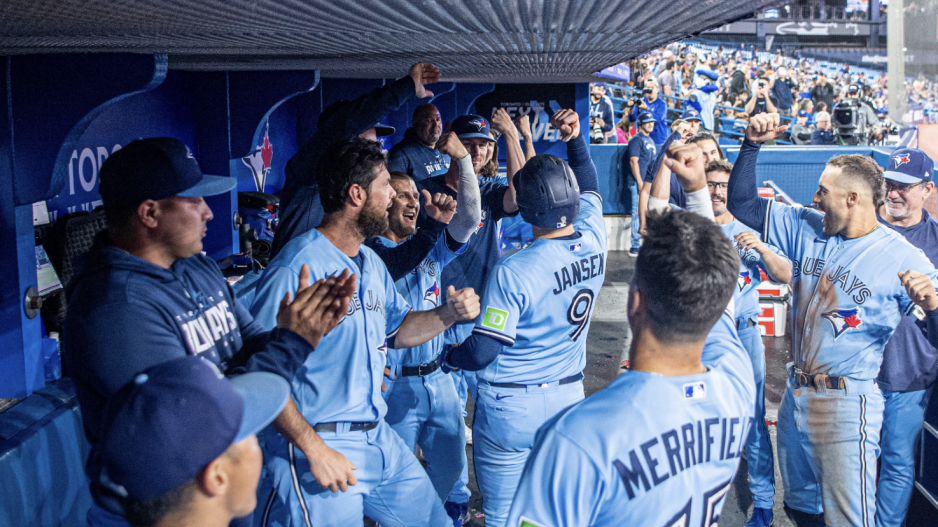Canadians who follow Major League Baseball (MLB) are familiar with the plight of the Oakland Athletics (or A’s). For the past few months, fans of the team have protested over the possibility of the franchise relocating to another North American venue.
The dire state of the Oakland-Alameda County Coliseum, and the consistent refusal of municipal governments to commit to building a new stadium, have left the nine-time World Series champions in limbo.
A relocation to Las Vegas – ironically echoing the experience of Oakland’s National Football Team (NFL), the Raiders – is being touted as a solution. Still, other metropolitan areas are still being considered as possible new destinations for the A’s.
BC Place, currently the home of the BC Lions of the Canadian Football League (CFL) and the Vancouver Whitecaps of Major League Soccer (MLS), has functioned as a baseball stadium. In , the Vancouver Canadians (then playing in the Pacific Coast League) hosted some of their contests at BC Place. Four MLB franchises participated in exhibition games in 1994.
, when Research Co. and Glacier Media first queried about MLB coming to British Columbia, 61 per cent of residents told us that this would be a good idea. When we asked again earlier this month, we still had three in five residents (60 per cent) who considered it wise to bring the Athletics franchise to Vancouver.
British Columbians aged 18 to 34 are particularly thrilled with the idea of a Vancouver-based MLB team (67 per cent), along with 64 per cent of their counterparts aged 35 to 54 and 51 per cent of those aged 55 and over.
The numbers are intriguing on other aspects of the relocation.
In Metro Vancouver, 47 per cent of residents (down five points) say they would attend at least one home game a year if Vancouver had an MLB team, and 22 per cent would be “very likely” or “moderately likely” (down six points) to purchase season tickets. BC Place would stand to host at least 81 home games in a regular season running from April to September, even if the team does not make the playoffs.
Having another franchise to follow is attractive for more than half of British Columbians (51 per cent) who say they would watch the team’s games at home, while more than a third (37 per cent) would watch at a bar or pub. Both of these numbers are unchanged from 2021 and require a different economic commitment than actual tickets.
Across the province, 14 per cent of British Columbians would be “very likely” to buy merchandise or apparel with the team’s logo. with the 14 per cent who currently possess BC Lions merchandise or the 13 per cent who own something with the Toronto Blue Jays logo or crest.
Before the Vancouver Canucks joined the National Hockey League (NHL) in 1970 as an expansion franchise, British Columbians who liked the sport were following other teams. At this point, almost three in five of the province’s residents (59 per cent, down three points) do not have a favourite MLB team. The Blue Jays are first with 32 per cent (up four points), followed by the Seattle Mariners with six per cent (down one point) and other teams accounting for three per cent (up one point).
The presence of a new team would have a profound effect on these allegiances. More than three in five British Columbians who currently root for a team (62 per cent, down seven points) say they would jump ship and embrace Vancouver’s MLB franchise.
Bringing a professional sports team to a city requires an extraordinary investment. Salaries in American dollars and ensuring that a venue that was good enough for baseball in the 1990s is still operational in the 2020s are two of the main hurdles. Still, when asked to imagine watching a game at a ballpark in Vancouver, three in five British Columbians are on board.
For reference, when we asked about other sporting events , 62 per cent of British Columbians agreed with Vancouver becoming a host city for the FIFA World Cup in 2026, 42 per cent expressed support for a Summer Olympics bid in 2036 and 29 per cent disagreed with the provincial government’s decision to abandon a proposed bid for the 2030 Winter Olympics. Put differently, pursuing an MLB franchise is as popular in British Columbia as a FIFA World Cup, and less divisive than anything Olympic.
Mario Canseco is president of Research Co.
Results are based on an online study conducted from July 29 to August 1, 2023, among 800 adults in British Columbia. The data has been statistically weighted according to Canadian census figures for age, gender and region in B.C. The margin of error – which measures sample variability – is plus or minus 3.5 percentage points, 19 times out of 20.


